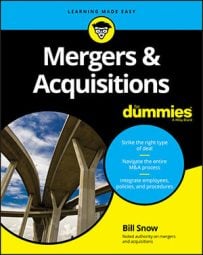Depending on the terms of the letter of intent (LOI), informing outsiders about the deal may be a breach of confidentiality. If one or both of the companies is public, disclosure of this insider information may be considered illegal, especially if someone uses it to buy or sell stock. But it’s easily avoidable — just keep your mouth shut.
Even if the Buyer and Seller are private companies, improperly disclosing deal discussions may harm one or both of the companies. The Seller is most susceptible to consequences: Employees may jump if they think they’ll lose their jobs post-sale, and competitors can use the information to steal customers from the Seller.
Don’t call the M&A seller’s employees without permission
Unfortunately, Buyers have been known to pick up the phone and call a Seller’s employees prior to the deal closing. Sometimes, Buyer even lets slip that he’s buying the company and that the employees will soon have a new boss.
Although the cause of this behavior is usually not malicious (in their excitement about doing a deal, would-be Buyers jump the gun and start calling employees as if they’ve already closed the deal), this conduct is still wholly unacceptable and really just poor form. Tipping off an unsuspecting employee about a deal can cause untold havoc in Seller’s business, much like breaking confidentiality can.
Buyers should always follow the chain of command and only speak with those people who know about the deal and to whom the Seller explicitly agrees you can contact. Make sure you go through the proper channels.
Don’t contact a seller’s customers or vendors without authorization
Another huge no-no for Buyers! Customers are the most important relationship for a Seller, and a Buyer who carelessly contacts a customer and informs her about the pending deal may cause that customer to find a new vendor. This kind of breach can quickly scuttle the deal, as well as harm the Seller.
In most cases, this breach is caused by an overzealous Buyer trying to conduct due diligence. Although determining the strength of the relationship with customers is important, this situation is delicate, and Buyers should tread carefully.
Buyers should refrain from contacting Seller’s vendors without permission for the same reasons.

